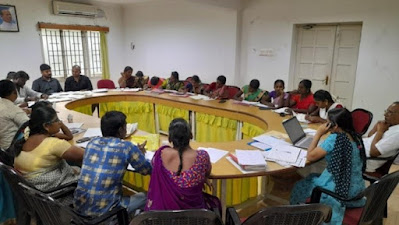Under the slogan: For an equal future with access to the right to Social Protection, the International Network for Social Protection Rights - INSP!R demands on International Women's Day that women deserve an equal future without stigma, stereotypes or violence; a future that is sustainable, peaceful, with equal rights and opportunities for all.
In these years, the COVID-19 pandemic provoked an unprecedented global crisis in the world of work, reflecting marked reductions in employment and labour participation, which translated into historic increases in unemployment (125 million jobs lost, according to ILO data), affecting women, young people and informal workers the most.
The negative effects have contributed to the increase of multiple inequalities such as ethnicity, age, socio-economic status, disability or geographical location, further impacting women in precarious conditions and increasing their risk of social exclusion. This is a setback in social rights worldwide (UN Women).
The INSP!R Network, present in Latin America & Caribbean, Asia, Africa and Europe, noted that women are placed in more precarious jobs, not only in terms of salary, but also in terms of working conditions, instability or violation of rights, as well as a greater probability of being employed in the informal economy.
In 2020, only 46.9% of the world's population had access to at least one social protection benefit, and only 44.9% of mothers with new-born children had access to maternity cash benefits. Even with women's greater vulnerability to poverty, only 23 per cent of the social protection and labour market measures adopted in response to COVID-19 are demonstrating gender sensitivity. The strain on health systems led to the disruption of essential services, including maternal health services, with an estimated 12 million women in 115 low- and middle-income countries experiencing difficulties with family planning services, resulting in 1.4 million unintended pregnancies according to UN Women (2022).
This social crisis continues despite the economic recovery in some parts of the world, with unemployment rates and levels of poverty and extreme poverty higher than before COVID-19. The loss of employment and the reduction of labour income during the pandemic have particularly affected the lower income groups; it has also highlighted the vulnerability of a large part of the population in the medium-income groups, characterised by low levels of contributions to contributory social protection and very low coverage of non-contributory social protection.
The high levels of informality facilitated the termination of employment relationships without compensation, for example, domestic workers found themselves in irregular situations in which they were exposed to contagion and forced to carry out tasks outside of those agreed. Of these workers, only 25.5% were covered by or paid social security contributions. Although progress has been made in some countries with regulations governing the sector, based on ILO Convention 189, 11.2% of them are living in poverty. In addition, women's workload in the home has intensified, with data from 16 countries showing that women spent 31 hours a week on care work. (UN Women) This increase in domestic responsibilities resulting from crisis confinement has raised the risk of a "return to the conventional" with regard to gender roles.
Moreover, reports of violence against women and femicides increased in many parts of the world. Even before the pandemic, it was estimated that 245 million women aged 15 and over had experienced domestic, physical, sexual and workplace violence.
In light of this, the INSP!R Network and its partners demand that:
-Public policies should focus on the real situation of women in all spheres and put an end to the dynamics of social exclusion. If we do not broaden our vision, if we do not incorporate the gender approach in the fight against poverty and social exclusion at a time as important as the present, we will be perpetuating and reinforcing the inequality of our system. And instead of moving forward, we will be moving backwards. The current crisis cannot but be an opportunity to transform our global care system and to guarantee real access to gender responsive social protection systems.
-Public administrations, policy makers, economic and social actors and society as a whole should promote and implement response plans to the current health, social and economic crisis that address the gendered impact of the pandemic. They should promote education for equality with the aim of eradicating the intergenerational transmission of gender inequality on which our current system is based.
-States should orient development processes towards guaranteeing the full exercise of all human rights, including the right to social protection and labour rights for all women. This entails addressing:
- the indivisibility of women's rights, including sexual and reproductive rights, economic, social and cultural rights,
- the importance of dismantling the unjust social organisation of care, patriarchal cultural patterns and male-centred biases in economic, social and cultural systems,
- Promote the adoption and implementation of laws, policies, comprehensive and multisectoral action plans, international standards such as conventions 189 and 190 of the ILO to prevent, address, punish and eradicate different forms of gender-based violence and discrimination against women.
The INSP!R Network recognises that there can be no progress and equality without women's equal rights and full participation; and there can be no gender equality without women's enjoyment of their human and labour rights, essential for women's empowerment and an equal future with the right to social protection for all.














